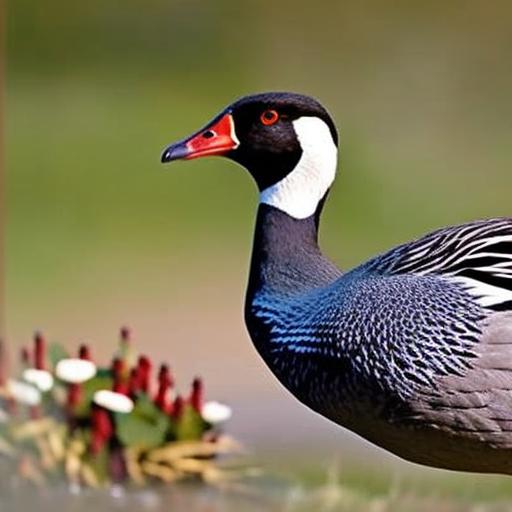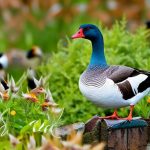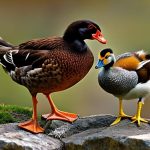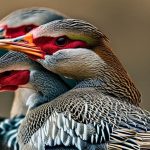Geese invading yards and causing damage is a common problem that many homeowners face. These large birds can be quite a nuisance, leaving behind droppings that can damage lawns and gardens, and even posing a threat to the health and safety of residents. It is important to find humane solutions to this problem, as harming or killing the geese is not only cruel but also illegal in many areas.
Key Takeaways
- Geese can be a nuisance in yards, causing damage and leaving droppings.
- Understanding geese behavior can help in finding effective solutions to keep them away.
- Natural deterrents like planting certain types of vegetation or using decoys can be effective.
- Physical barriers like fences or netting can prevent geese from entering yards.
- Repellents and scare tactics like noise makers or reflective tape can also be used to keep geese away.
Understanding the behavior of geese
To effectively address the issue of geese in yards, it is important to understand their behavior. Geese are attracted to yards because they provide a safe and comfortable environment for nesting and feeding. They are particularly drawn to areas with open grassy spaces, access to water, and a lack of predators.
Geese are known for their territorial behavior, especially during nesting season. They will aggressively defend their nesting sites and can become quite aggressive towards humans and other animals that they perceive as threats. Understanding these behaviors can help homeowners develop strategies to deter geese from their yards.
Natural deterrents for geese
One effective way to deter geese from yards is by using natural plants and herbs that repel them. Geese dislike certain plants, such as tall grasses, ferns, and shrubs with thorns or prickly leaves. Planting these types of vegetation around the perimeter of the yard can create a natural barrier that discourages geese from entering.
Using natural deterrents has several benefits over chemical ones. Natural plants and herbs are safe for the environment, pets, and humans. They also provide additional benefits such as attracting beneficial insects and birds, improving soil health, and enhancing the overall aesthetics of the yard.
Physical barriers to prevent geese from entering yards
Physical barriers such as fences and netting can be effective in preventing geese from entering yards. Fences should be at least three feet high and have small gaps or mesh to prevent geese from squeezing through. Netting can be installed over ponds or other water features to prevent geese from accessing them.
Proper installation and maintenance of physical barriers are crucial for their effectiveness. Fences should be securely anchored to the ground to prevent geese from digging underneath. Netting should be regularly checked for any tears or holes and repaired promptly.
Repellents and scare tactics for geese
Repellents and scare tactics can also be used to deter geese from yards. Noise makers such as wind chimes, bells, or even a radio playing at a high volume can help keep geese away. Visual deterrents such as scarecrows, reflective tape, or balloons with eyes painted on them can also be effective.
Predator decoys, such as plastic owls or coyotes, can be placed in the yard to scare away geese. However, it is important to regularly move these decoys around to prevent the geese from becoming accustomed to them.
The role of landscaping in keeping geese away
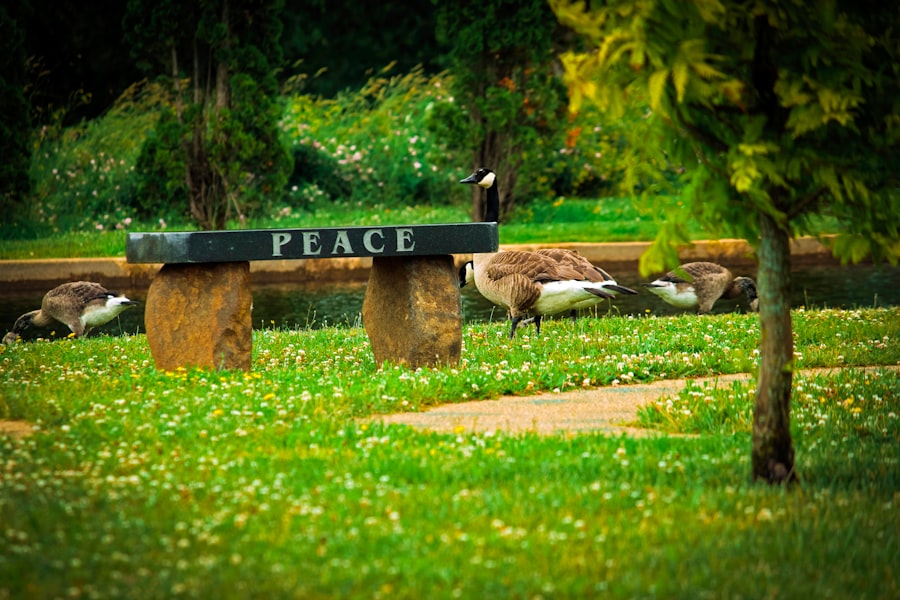
Proper landscaping can play a significant role in deterring geese from yards. Geese prefer open spaces with easy access to water, so creating a landscape that is less attractive to them can help keep them away. Planting dense shrubs or tall grasses around the perimeter of the yard can create a barrier that geese are less likely to cross.
Choosing plants that geese dislike can also be effective. Geese tend to avoid plants with strong scents or prickly leaves. Some examples include lavender, rosemary, and holly bushes. Incorporating these plants into the landscape can help deter geese from entering the yard.
Creating a hostile environment for geese
Creating a hostile environment for geese can also discourage them from entering yards. This can be done by installing water features such as fountains or sprinklers that are activated by motion sensors. Geese dislike the sound and movement of water, so these features can help keep them away.
It is important to note that while creating a hostile environment for geese, it is crucial to not harm the birds in the process. Using non-lethal methods and strategies is essential to ensure the humane treatment of geese.
Tips for maintaining a goose-free yard
Regular maintenance is key to keeping geese away from yards. This includes keeping the yard clean and free of debris, such as fallen leaves or grass clippings, which can attract geese. It is also important to promptly remove any standing water, as this can provide a breeding ground for mosquitoes and other pests that geese feed on.
Regularly inspecting and maintaining physical barriers, as well as replenishing natural deterrents such as plants or herbs, can help ensure their effectiveness in deterring geese.
Seeking professional help for persistent geese problems
If the problem of geese in yards persists despite implementing various strategies, it may be necessary to seek professional help. Wildlife management professionals have the knowledge and experience to effectively address persistent geese problems while ensuring the humane treatment of the birds.
Working with a professional can also provide homeowners with additional resources and support in finding long-term solutions to the problem.
Conclusion and summary of effective strategies for keeping geese away from yards
In conclusion, dealing with geese invading yards and causing damage can be a frustrating problem for homeowners. However, by understanding their behavior and implementing effective strategies, it is possible to deter geese from yards in a humane manner.
Natural deterrents such as plants and herbs that repel geese, physical barriers like fences and netting, repellents and scare tactics, proper landscaping, creating a hostile environment, regular maintenance, and seeking professional help when needed are all effective strategies for keeping geese away from yards.
It is important to emphasize the importance of finding humane solutions to the problem of geese in yards. Harming or killing the geese is not only cruel but also illegal in many areas. By implementing these strategies, homeowners can create a safe and enjoyable environment for themselves and the geese.
If you’re looking for ways to keep geese away from your yard, you might also be interested in learning about what vegetables quails eat. Quails are small birds that make great backyard pets, and they have specific dietary needs. Poultry Wizard has a helpful article that lists various vegetables that quails enjoy, providing you with valuable information on how to keep your quails healthy and happy. Check out the article here to discover which vegetables are safe and nutritious for your quails to consume.
FAQs
What are some effective ways to keep geese away from my yard?
There are several effective ways to keep geese away from your yard, including using decoys, installing fencing, using repellents, and modifying your landscaping.
What types of decoys can I use to keep geese away?
You can use a variety of decoys to keep geese away, including fake predators like owls or coyotes, or even fake geese.
What kind of fencing is best for keeping geese out of my yard?
A fence that is at least 3-4 feet tall and has small mesh or wire spacing is best for keeping geese out of your yard.
What types of repellents can I use to keep geese away?
There are several types of repellents you can use to keep geese away, including visual repellents like reflective tape or scare balloons, as well as auditory repellents like noise makers or ultrasonic devices.
How can I modify my landscaping to keep geese away?
You can modify your landscaping by removing any sources of food or water that may attract geese, as well as planting vegetation that geese do not like to eat, such as prickly or thorny plants.
Meet Walter, the feathered-friend fanatic of Florida! Nestled in the sunshine state, Walter struts through life with his feathered companions, clucking his way to happiness. With a coop that’s fancier than a five-star hotel, he’s the Don Juan of the chicken world. When he’s not teaching his hens to do the cha-cha, you’ll find him in a heated debate with his prized rooster, Sir Clucks-a-Lot. Walter’s poultry passion is no yolk; he’s the sunny-side-up guy you never knew you needed in your flock of friends!

